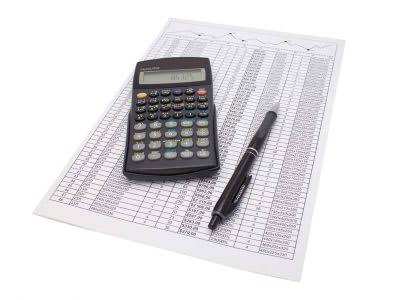
Inadequate tracking of cash inflows and outflows can result in cash flow shortages. Implementing cash flow forecasting and monitoring accounts receivable regularly can help address this challenge. If you’re looking to brush up on or learn advanced skills, consider “Mastering QuickBooks Online” by Robinson Cortez. The best thing is that many online courses come with accounting and bookkeeping for small business videos that make learning even easier. This allows you to better understand the specific tasks being discussed, plus you have the option to pause and rewatch sections in case there’s something you don’t understand.
What skills does a bookkeeper need?
In the cash method of accounting, you record the transaction only when the money has actually changed hands. So, even though you received an invoice in January, you’d record the expense as a cash transaction in February, on the date that it was paid. normal balance Proper bookkeeping also allows you to determine the areas within your company that could benefit from improvements.

Open The Right Accounts
- If your business incorporates brick-and-mortar sales with online sales, payroll will be different between the two.
- The balance sheet accounts also called the permanent accounts, remain open for the next accounting cycle.
- For instance, if you prefer personalized learning, hiring a QuickBooks ProAdvisor can be effective.
- However, this comes with a fee, so you might want to explore free resources first to explore basic features.
- As procrastination-worthy as it may seem, bookkeeping is a necessary part of successfully running your business.
You can further analyze your balance sheet and get insight into your business using financial ratios. The equity section gives you the net worth of your business, which is the value of all your physical and non-physical assets. Quick note—every business is unique, so before you get started, it’s always best to speak with a professional who can help you decide what’s best for your business. Cash is always listed first, followed by the rest of your assets, based on how quickly each asset can be converted into cash.

Which financial records should you keep?
Remember that each transaction is assigned to a specific account that is later posted to the general ledger. Posting debits and credits to the correct accounts makes reporting more accurate. To set up a budget, gather your financial data, such as income statements, balance sheets, and cash flow statements. This will give you a clear picture of your business’s past financial performance and help you make realistic projections for the future. If you run a start-up you can save time by recording all transactions as they come up. This https://www.bookstime.com/ saves you from tracking important financial information for the end of the fiscal period at the last-minute.
Accounts payable
- In single-entry bookkeeping, each transaction is recorded as a single entry in a ledger, while in double-entry bookkeeping, a transaction is recorded twice.
- Small business owners often juggle multiple roles, leaving little time for proper bookkeeping.
- They need to know if the company is making some progress and how they contribute to its growth.
- Accounts Payable is an expense account that lets you know how much money you owe to your creditors.
- By tracking accounts receivable and payable, business owners can anticipate cash shortages, schedule payments, and avoid unnecessary borrowing.
- Any monies you owe to suppliers or other agencies for goods or services provided are placed under Accounts Payable.
It’s a comprehensive framework of guidelines, principles, and standards governing how publicly traded companies prepare and present financial information. Nonprofits and private businesses use GAAP accounting to standardize bookkeeping practices or meet stringent reporting requirements. For those looking to level up their financial reporting, adopting generally accepted accounting principles (GAAP) can unlock new opportunities but also involve challenges.

You can choose to take the QuickBooks Certified User Online or Intuit Certified Bookkeeping Professional examination, or both. QuickBooks Certified User Online validates QuickBooks skills for end users (e.g., individuals and businesses), while Certified Bookkeeping Professional demonstrates bookkeeping knowledge. Sandra Habiger is a Chartered Professional Accountant with a Bachelor’s Degree in Business Administration from the University of Washington. Sandra’s areas of focus include advising real estate agents, brokers, and investors. She supports small businesses in growing to their first six figures and beyond. Alongside her accounting practice, Sandra is a Money and Life Coach for women in business.